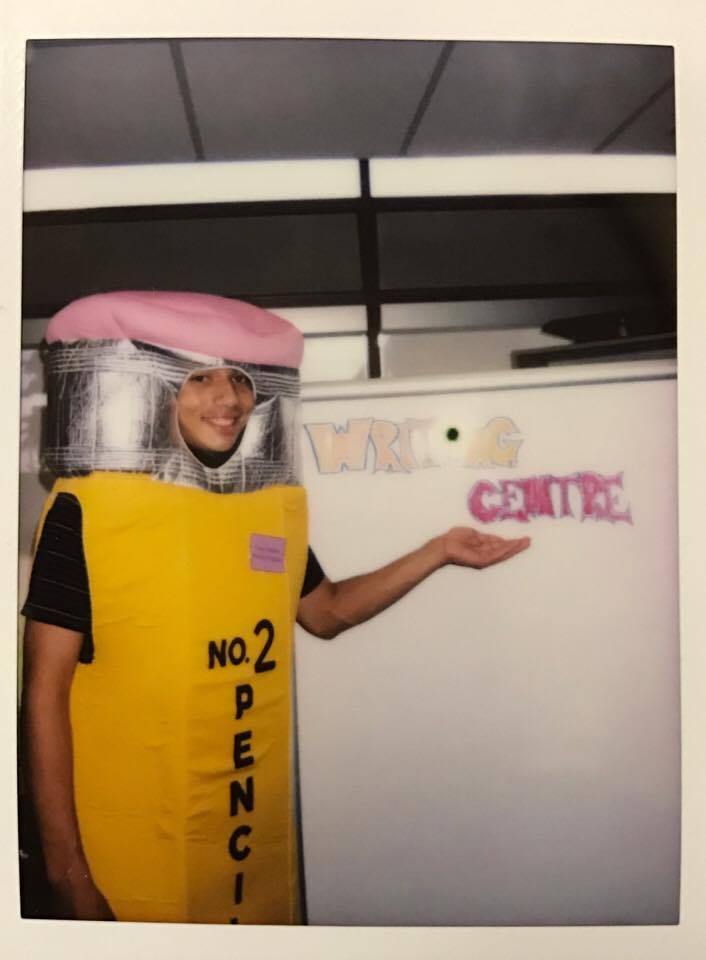So I don’t know about the rest of you, but these long winter nights have been just the thing for getting caught up on The Walking Dead. The other night, after about seven straight hours in front of the tv, I started contemplating things, as I tend to do. There I was, a blob of passive pencil inactivity, watching a bunch of zombies run around actively killing things.
The irony was pretty delicious because, as I am about to explain, the phrase “by zombies†is a great way to test for the passive voice in your writing. Confused? Sorry. Sometimes I get caught up in my own brilliant narrative. So let me get a grip, and let’s get to the otherworldly business of the active and passive voices. With some zombies thrown in for good measure, of course.
The active voice connects the subject and predicate tightly together, while the passive voice displaces the action, or depicts something being subjected to an action. Now I know that the word passive gets a lot of bad press in a North American context: we like a lot of in-your-face action on this continent. But in writing, active and passive voices are both totally legit, and if used intentionally, can have as deep an effect on a reader as a machete through a front door.
Here’s how they work:
The active voice tends to be used more in the Arts, where we like to know who is doing what. For example: “Vikings plundered the undefended village.†In this sentence, “vikings†is the subject, and “plundered†is the predicate (a.k.a verb). It is clear in this sentence that the vikings are a bunch of bad-asses who are causing a lot of trouble for some poor, unsuspecting villagers.
The passive voice tends to appear in the Sciences, where it may be more important to know what is happening, rather than who is making something happen. A passive verb form is from the verb “be†with the past participle of the main verb (so constructions like “were plundering; is explodingâ€). For example: “Potassium metal was added to a beaker of water.â€
Who added it, you ask? Well, who cares? It is probably more important to know that these elements are now together in a beaker, and we should probably evacuate the lab before the whole thing blows up.
Where do zombies come in? So glad you asked. Well, if you are unsure whether you are in the active or passive voice, see if you can insert “by zombies†after your verb phrase.
Let’s give this test a whirl, shall we? Consider:
“Vikings plundered by zombies the undefended village.†Nope, not happening here. But did you really expect a bunch of vikings to share the booty?
“Potassium metal was added by zombies to a beaker of water.†Bingo! Of course the zombies added something that could explode. They’re zombies, after all.
BTW: Check out this neat video if you are curious about what happens in this reaction.
But don’t just blindly choose either voice based on your faculty or major. After all, that’s something only a zombie would do! Recognize that there are times when you might want to choose either voice in order to emphasize or downplay certain elements in your sentence.
The active voice is good when you want to highlight agency, or make sure that your subject gets full credit for the action. So, for example, if we want to indulge the undead and showcase their destructive tendencies, we would write “Zombies added potassium metal to a beaker of water.†Who needs a crossbow when we can put some zombies in a lab?
Passive voice is great for the times when you want to emphasize an action being carried out upon an object, or that unfortunate object’s lack of agency (or powerlessness). For example, if we wrote “The undefended village was plundered by Vikings,†we would emphasize the situation of the helpless village, just sitting there … alone … waiting to be pillaged [sob] and looted. Those poor villagers. Such a sentence arguably downplays the bold strength of the vikings.
Got it? Good! Now you know how to sound more or less like a zombie in your writing. But hey what do I know?!! I’m only a pencil who lives and breathes writing! As Daryl said: “You better watch your mouth sunshine.†So y’all better watch your writing.
Til next time!
G. Graphite
